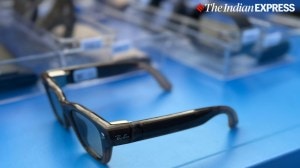Elixir of youth
WASHINGTON, Jan 14: The poet who dared "Death, be not so proud" may have scientific advances to back his chutzpah even if it is to...

WASHINGTON, Jan 14: The poet who dared "Death, be not so proud" may have scientific advances to back his chutzpah even if it is too late for him.
Scientists in Texas have found what they say is a fountain of "youth" for the human cell: an enzyme called "telomerase" which halts the normal biological clocks of cells and enables them to continue dividing, thereby prolonging their life.
"We have found that biological aging can be put on hold," University of Texas Southwestern Medical Center researcher Jerry Shay announced on Tuesday along with colleagues from Geron Corporation, a California bio-technology company which backed the study.
Within hours, Geron’s stock jumped 44 per cent on the Wall Street, an indication of the immense human interest and financial stake in anti-ageing drugs. Coming on the heels of the cloning announcement on the cusp of the millenium, there was immense speculation on what arresting aging could mean to mankind. Some scientists urged caution. They said there was a big difference between getting laboratory cells to divide forever, also called cancer, and getting a person’s body to live longer. ‘‘It is a nice piece of science… but to say this can prolong life is a total leap of faith," Prof Raj Sohal of the Southern Methodist University in Dallas maintained. But several others agreed that by using Telomerase, virtually an elixir, enabling cells to continue dividing, it may eventually be possible to control several age-related diseases from muscular dystrophy to degenerative blindness to even skin wrinkling. Is it going to immortalise us? May be not. But it raises the possibility that we could take a patient’s own cells, rejuvenate them, then modify the cells as needed and give them back to the patient to treat a variety of genetic and other diseases," Prof Woodring Wright, the senior author of the study said."Conceivably, longer living human cells could be used to replace age-worn cells in the retina of the eye, a potentially effective treatment for muscular degeneration, or in the lining of blood vessels to prevent heart attack or a stroke," the researchers said in a statement. Prof Wright predicted that human applications could come in three to five years, after tests to determine the safety and effectiveness of the techniques.
For years, biologists have known that human cells grown in a test tube can divide some 50 to 70 times and then fail, as if someone turned off the electricity. Then they age and die. Some researchers suspected this was somehow linked to the length of protective structures called "telomeres", repeated sequences of DNA on the ends of chromosomes. Each time a normal cell divides, the telomeres get shorter, until they become too short to protect the chromosome. When that happens, the cell can no longer divide, and eventually dies. Cancer cells, which contain the enzyme telomerase, can divide indefinitely.
When researchers introduced the telomerase enzyme to normal cells, the cells continued to divide like young cells.
Photos





- 01
- 02
- 03
- 04
- 05


























